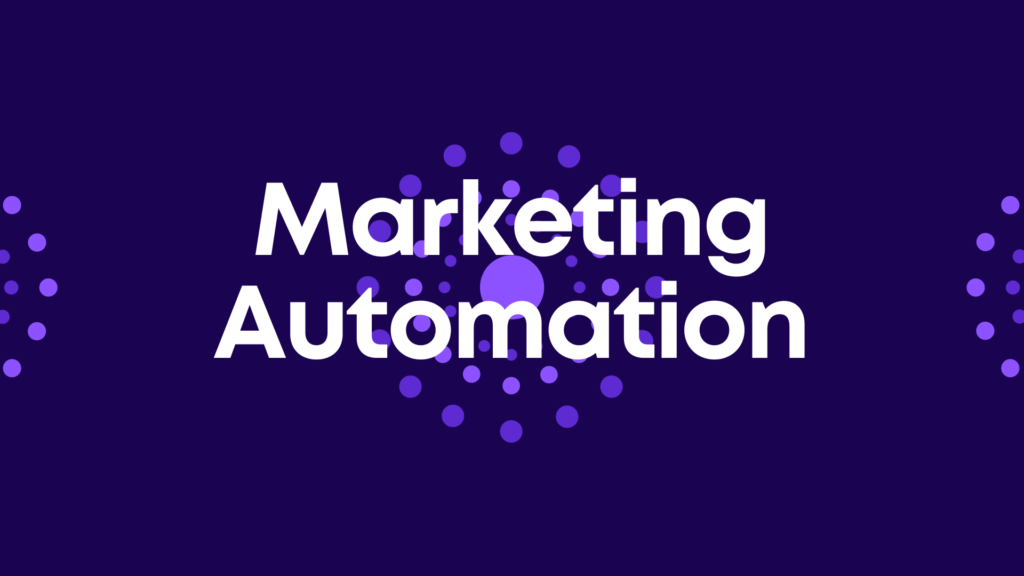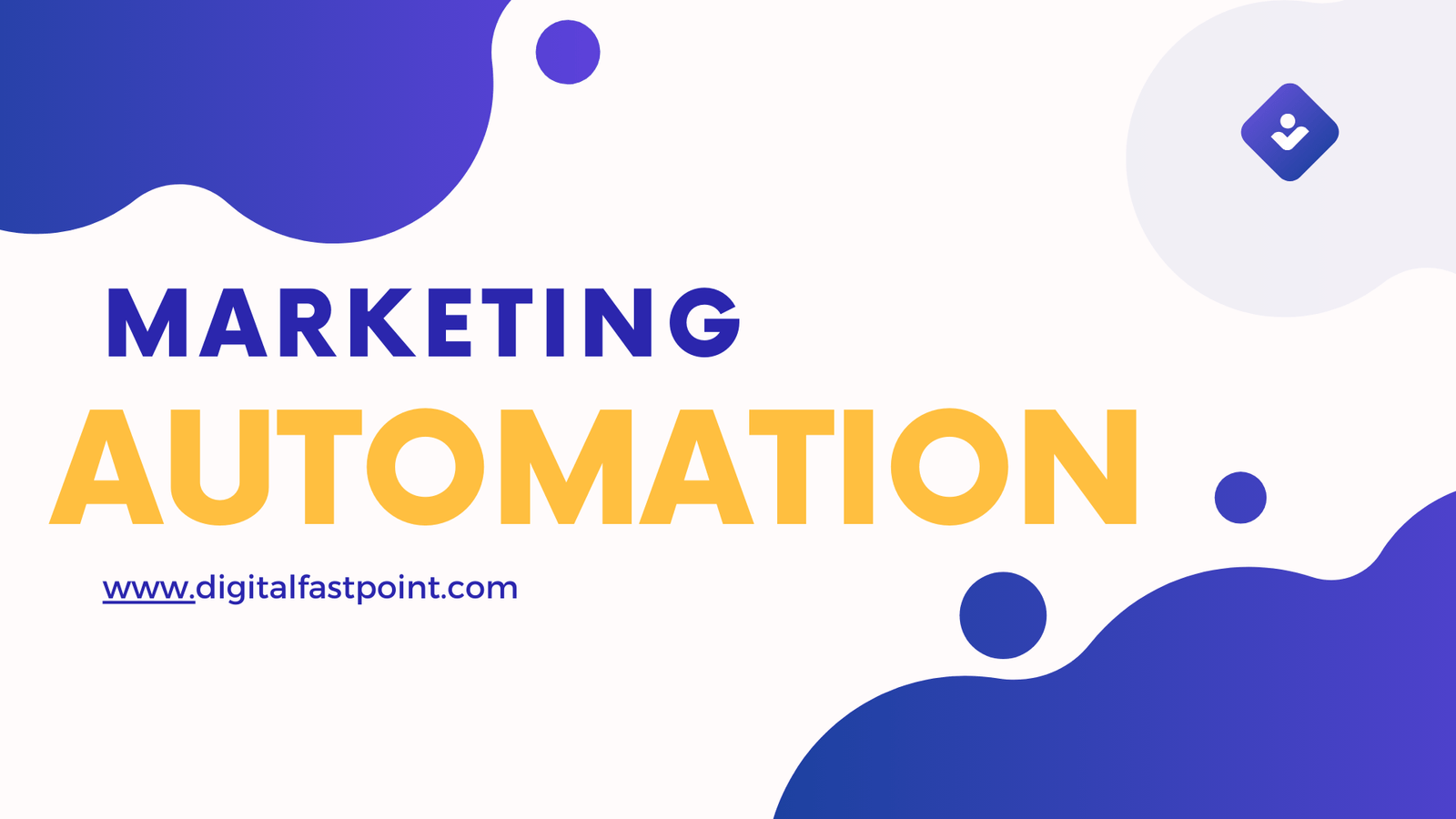In the competitive realm of digital marketing, the journey from a startup’s humble beginnings to a global success story is often paved with challenges. Consider this: 63% of businesses that have achieved explosive growth credit a strategic embrace of marketing automation as a pivotal turning point. Picture a small business navigating the complex landscape, fueled by the transformative power of automation. It’s not just a tool; it becomes the secret weapon that propels dreams into reality, turning aspirations into achievements.
Streamline Your Marketing Automation Strategy with a Comprehensive Table of Contents
Understanding Marketing Automation

Navigating the Digital Landscape: The Need for Marketing Automation
Maximize the Efficiency of Marketing Automation with Core Elements to Boost Your Campaigns.
At its core, marketing automation harnesses the power of advanced technology to streamline and automate various repetitive marketing tasks and workflows. This innovative approach transforms the traditional marketing landscape, offering a dynamic solution that extends far beyond manual processes. From the initial stages of lead generation to the pivotal phase of customer retention, marketing automation spans a comprehensive spectrum of activities that are indispensable for achieving sustained growth in the competitive business environment.
This sophisticated system operates seamlessly, allowing businesses to create, manage, and optimize multifaceted campaigns with greater efficiency. It goes beyond mere task automation by incorporating intelligent algorithms and data-driven insights to enhance decision-making processes. By automating repetitive tasks such as email campaigns, social media postings, and lead scoring, marketing automation empowers organizations to allocate their resources strategically, saving time and resources.
Crucially, marketing automation isn’t confined to a singular stage of the customer journey; instead, it orchestrates a continuous, interconnected strategy. From the initial point of capturing leads to nurturing relationships and ultimately retaining valuable customers, this approach ensures a cohesive and personalized experience for the audience. In essence, marketing automation becomes the engine that drives engagement, responsiveness, and relevance, laying the foundation for a thriving and adaptive marketing ecosystem.
Benefits of Marketing Automation
Unlocking the Power: Benefits of Marketing Automation
The advantages of marketing automation are diverse and impactful. Beyond the evident benefits of saving time and enhancing efficiency, it introduces a transformative dimension to customer interactions by facilitating a personalized approach. Picture this: the ability to connect with the precise audience, deliver a tailored message, and do so at the opportune moment. This represents the enchanting capability of marketing automation, where the orchestration of the right content aligns seamlessly with the audience’s needs and preferences.
The time-saving aspect of marketing automation is fundamental, freeing up valuable resources that can be redirected towards strategic planning and creative endeavors. By automating routine tasks, marketing teams can focus on devising compelling campaigns and refining their strategies, fostering a more innovative and agile environment.
Moreover, the personalized touch offered by marketing automation is akin to crafting an individualized experience for each customer. Through segmentation, targeted messaging, and data-driven insights, businesses can create a journey that feels tailored to the unique preferences and behaviors of their audience. This personalized engagement not only strengthens the connection between the brand and the customer but also significantly improves the likelihood of conversions and long-term loyalty.
In essence, marketing automation unveils a magical realm where efficiency, personalization, and precision converge, reshaping the way businesses engage with their audience and unlocking unprecedented possibilities for growth and success.
Getting Started: Setting Up Marketing Automation
Getting Started: Choosing the Right Tools for Your Business Goals
Choosing the appropriate tools constitutes the inaugural stride toward achieving success in implementing marketing automation. Given the vast array of options available in the market, aligning these tools with your specific business goals becomes a critical determinant of success. The selection process involves a thoughtful evaluation of features, scalability, and compatibility with your organizational objectives.
Once the tools are carefully chosen and integrated into your marketing infrastructure, the journey towards a tailored and effective automation strategy begins. Customization of automation workflows is the pivotal next step, allowing businesses to fine-tune their processes according to their unique needs and objectives. This tailored approach ensures that the selected tools not only meet the immediate requirements but also have the flexibility to evolve with the dynamic landscape of the business.
In essence, the synergy between tool selection and customization forms the bedrock of a successful marketing automation strategy. It empowers businesses to leverage the capabilities of automation technology in a way that is not only aligned with their current objectives but also adaptable to future challenges and opportunities. This strategic alignment enhances the efficiency and effectiveness of marketing efforts, setting the stage for sustained growth and accomplishment.
Strategic Planning for Success

Crafting Success: Aligning Marketing Goals with Automation Strategies
The alignment of marketing goals with automation is a pivotal aspect of developing a successful strategy. Crafting targeted campaigns that resonate with your audience represents a strategic move that lays the foundation for explosive growth.
By ensuring that your marketing automation efforts are closely aligned with your overarching business objectives, you set the stage for a more impactful and purposeful approach. This alignment allows you to leverage the full potential of automation tools to address specific goals, whether it’s lead generation, customer retention, or increasing brand visibility.
Crafting targeted campaigns within the framework of automation involves tailoring your messaging and outreach to precisely meet the needs and preferences of your audience. Understanding your audience’s behavior, preferences, and pain points enables you to create content that resonates on a personal level, fostering a deeper connection between your brand and your customers.
This strategic synergy between automation and targeted campaigns not only enhances the relevance of your marketing efforts but also increases the likelihood of capturing the attention and engagement of your intended audience. As a result, you position your business for significant growth, as your marketing initiatives become more attuned to the specific needs and desires of your market.
Optimizing Email Marketing with Automation
Revolutionizing Email Marketing: A/B Testing, Analytics, and Segmentation
Email marketing, a cornerstone of digital communication, undergoes a transformation with the integration of automation. Segmentation, a key feature facilitated by automation, introduces a new era of personalized messaging. Meanwhile, the strategic implementation of A/B testing and analytics serves as the refining touch, optimizing campaigns for maximum impact.
The introduction of automation elevates email marketing to a more sophisticated level, where messages are no longer one-size-fits-all. Through segmentation, businesses can categorize their audience based on various criteria such as demographics, behavior, or preferences. This segmentation allows for the delivery of tailored content, ensuring that each recipient receives messages that resonate specifically with their interests and needs.
Furthermore, the use of A/B testing introduces a data-driven approach to email campaigns. By experimenting with different elements such as subject lines, content, or call-to-action buttons, businesses can analyze performance metrics and fine-tune their strategies based on real-time feedback. This iterative process ensures that campaigns are continually optimized for effectiveness.
Analytics, another integral component of automated email marketing, provides valuable insights into recipient behavior and campaign performance. Metrics such as open rates, click-through rates, and conversion rates offer a comprehensive understanding of how audiences interact with email content. These insights, in turn, empower marketers to make informed decisions, refine their messaging, and enhance the overall impact of their email campaigns.
In essence, the marriage of automation, segmentation, A/B testing, and analytics brings about a revitalization of email marketing. It evolves from a static communication tool to a dynamic and responsive strategy that adapts to the individual preferences of recipients, ultimately maximizing the effectiveness of digital communication efforts.
Social Media Integration

Extending Reach: Social Media Integration with Marketing Automation
In the era of social connectivity, marketing automation expands its influence to encompass social media campaigns. This extension enables businesses to elevate brand visibility, actively engage their audience, and witness a soaring trajectory in growth.
Social media platforms have become integral channels for connecting with audiences, and marketing automation seamlessly integrates with these platforms to amplify their impact. By automating various aspects of social media campaigns, businesses can maintain a consistent and timely presence, ensuring that their brand remains visible and active across diverse social channels.
Elevating brand visibility through marketing automation involves strategic scheduling of posts, monitoring trending topics, and capitalizing on opportune moments to connect with the target audience. Consistency in posting, coupled with timely responses and interactions, reinforces the brand’s presence in the minds of social media users.
Furthermore, marketing automation facilitates a more personalized and targeted approach to social media engagement. By analyzing user behavior and preferences, businesses can automate the delivery of content that resonates with specific audience segments. This targeted engagement not only enhances the user experience but also increases the likelihood of meaningful interactions, fostering a stronger connection between the brand and its audience.
As businesses leverage marketing automation for social media campaigns, they not only streamline their processes but also tap into the vast potential for growth within the expansive landscape of social connectivity. The result is a dynamic and responsive social media presence that contributes significantly to overall brand visibility and engagement, ultimately propelling the business towards unprecedented levels of growth.
Data-Driven Decision Making

Informed Decision-Making: Leveraging Analytics for Continuous Improvement
Harnessing analytics is not merely an option; it has become an essential requirement in the modern business landscape. The adoption of data-driven decision-making practices serves to refine strategies, providing valuable insights that guide continuous improvement.
In a landscape where information is abundant, businesses are increasingly recognizing the significance of leveraging analytics to make informed decisions. Analytics empowers organizations to derive meaningful insights from vast datasets, allowing for a more nuanced understanding of customer behavior, market trends, and the performance of various business initiatives.
Data-driven decision-making is a strategic approach that involves basing choices on empirical evidence rather than intuition alone. By analyzing relevant metrics and key performance indicators (KPIs), businesses gain a comprehensive understanding of what is working well and where improvements can be made. This iterative process of analysis and refinement is crucial for adapting to changing market dynamics and staying ahead of the competition.
Furthermore, analytics enables businesses to measure the success of marketing campaigns, customer engagement strategies, and overall business performance. The insights derived from analytics not only validate the effectiveness of current strategies but also inform future decision-making, allowing for a more agile and responsive approach to evolving market conditions.
In essence, the integration of analytics is not just a beneficial practice; it has become a necessity for businesses striving for sustained success. The strategic use of data-driven insights empowers organizations to continuously refine their strategies, optimize performance, and stay on the cutting edge of their respective industries.
Overcoming Common Challenges
Overcoming Hurdles: Common Challenges in Automation Implementation
The implementation of automation introduces its own set of challenges. From the initial stages, where hiccups may occur, to the ongoing process of troubleshooting, understanding and addressing these common issues is imperative to ensure a smooth journey towards success.
The transition to automation can encounter initial challenges such as integrating the new system with existing processes, training team members, and adapting workflows to the automated environment. These initial hiccups are a natural part of the implementation process and, when approached proactively, can be valuable learning experiences.
Ongoing troubleshooting is a crucial aspect of maintaining the efficiency of automated systems. This involves identifying and rectifying any issues that may arise during day-to-day operations. Whether it’s addressing technical glitches, refining automation workflows, or optimizing the integration of different tools, a proactive troubleshooting approach is essential for minimizing disruptions and maximizing the benefits of automation.
Understanding the common challenges associated with automation implementation is the first step towards effective problem-solving. It requires a collaborative effort, involving key stakeholders, IT teams, and those directly involved in utilizing the automated processes. By fostering a culture of continuous improvement and responsiveness to challenges, businesses can navigate the complexities of automation implementation more effectively, ensuring a smoother path towards achieving their goals.
Success Stories: Realizing Explosive Growth
Realizing Potential: Success Stories of Explosive Growth through Automation
Real-world examples speak volumes. Dive into case studies highlighting businesses that have harnessed the power of marketing automation for unparalleled growth.
Future Trends in Marketing Automation
The Future Landscape: Trends in Marketing Automation
As technology advances, so does marketing automation. Explore the future with insights into AI and machine learning, predicting the next wave of innovations.
Staying Competitive: Tips for Continuous Adaptation
Staying Ahead: Tips for Continuous Adaptation in a Dynamic Landscape
To stay ahead, constant adaptation is key. Monitor industry changes, embrace agility, and stay ahead of the curve in the dynamic world of marketing automation.
Building a Robust Marketing Automation Team
Team Dynamics: Building a Robust Marketing Automation Team
Success requires a skilled team. Identify the essential skill sets and foster a collaborative environment for effective management of your automation strategies.
Common Misconceptions Debunked
Debunking Myths: Clearing Common Misconceptions About Marketing Automation
Addressing myths surrounding marketing automation is vital for widespread adoption. Clearing misconceptions paves the way for a more informed and confident approach.
Conclusion
Conclusion: Embracing the Power of Marketing Automation
In conclusion, the transformative power of marketing automation is undeniable. From streamlining processes to unlocking personalized engagement, it holds the key to turning dreams of explosive growth into reality. Embrace the possibilities, adapt to the evolving landscape, and witness your brand soar to new heights.
Frequently Asked Questions
- Is marketing automation suitable for small businesses?
- Yes, marketing automation can be tailored to suit the needs and scale of small businesses.
- How can I measure the success of my marketing automation campaigns?
- Success can be measured through key performance indicators (KPIs) such as conversion rates, engagement metrics, and ROI.
- What are the common challenges in implementing marketing automation?
- Challenges may include integration issues, data quality concerns, and the need for continuous optimization.
- Are there affordable marketing automation tools for startups?
- Yes, there are cost-effective tools suitable for startups. Research and choose tools that align with your budget and requirements.
- How often should I update my marketing automation strategies?
- Regular updates are recommended to stay aligned with industry trends and evolving consumer behavior.

